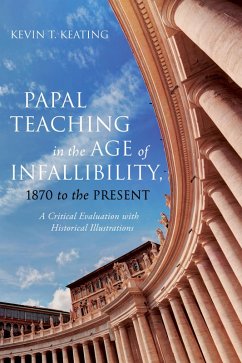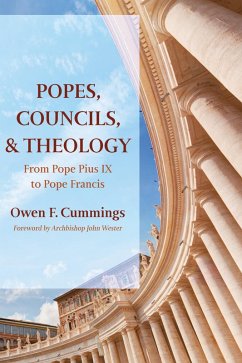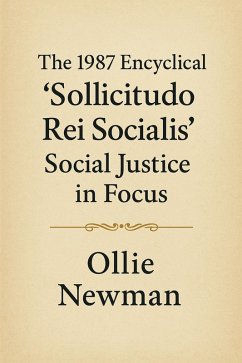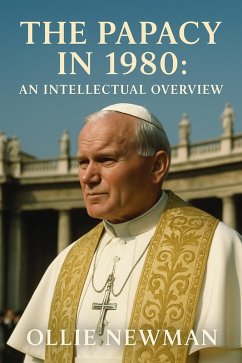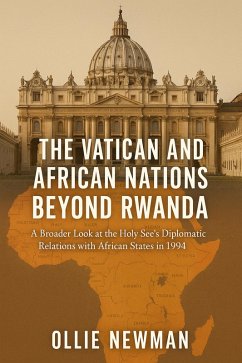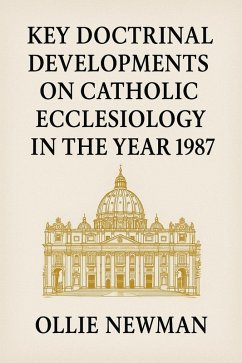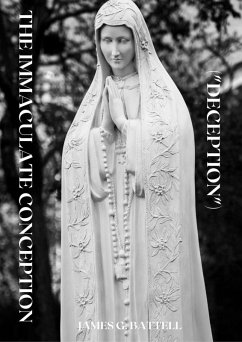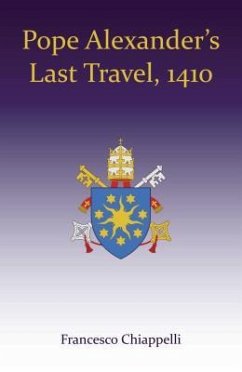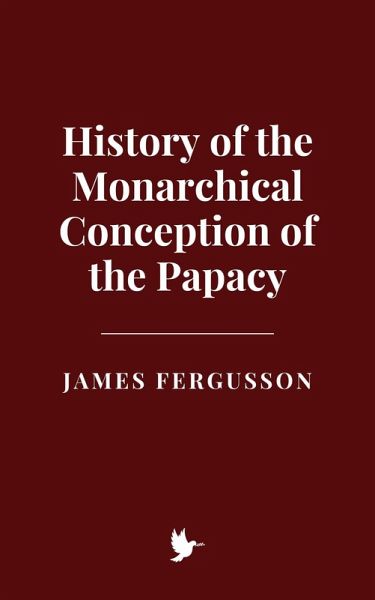
History of the Monarchical Conception of the Papacy (eBook, ePUB)

PAYBACK Punkte
0 °P sammeln!
This work explores the history of the papacy, focusing on its evolution from a spiritual institution to a complex monarchical entity with significant temporal authority. The papacy's development, particularly through the medieval period, was shaped by its claim to divine authority, which led to the assertion of papal supremacy over both church and state. As political and theological conflicts emerged, such as the Investiture Controversy and the Great Schism, the papacy navigated a delicate balance between spiritual leadership and political power. The Renaissance period saw the papacy exert its...
This work explores the history of the papacy, focusing on its evolution from a spiritual institution to a complex monarchical entity with significant temporal authority. The papacy's development, particularly through the medieval period, was shaped by its claim to divine authority, which led to the assertion of papal supremacy over both church and state. As political and theological conflicts emerged, such as the Investiture Controversy and the Great Schism, the papacy navigated a delicate balance between spiritual leadership and political power. The Renaissance period saw the papacy exert its influence over European monarchies while also patronizing the arts and further cementing its political authority.
In the modern era, particularly during the 19th and 20th centuries, the papacy faced new challenges brought on by the rise of secularism, nationalism, and communism. With the loss of the Papal States in 1870, the papacy's temporal power was diminished, but the spiritual authority of the pope was solidified through the proclamation of papal infallibility at the First Vatican Council. The 20th century also saw the papacy navigate the moral crises of the sexual abuse scandals, engage in global diplomacy, and confront the rise of modern ideologies. The papacy, particularly under Pope Francis in the 21st century, has sought to redefine its role as a global moral authority in a rapidly changing world, emphasizing issues such as poverty, climate change, social justice, and interfaith dialogue.
The history of the papacy reflects its ongoing tension between maintaining doctrinal authority and adapting to the changing dynamics of global politics, culture, and society. As the Church confronts internal and external challenges, the papacy continues to strive for relevance and moral leadership in the modern world, balancing tradition with the demands of an increasingly secular and interconnected global community.
In the modern era, particularly during the 19th and 20th centuries, the papacy faced new challenges brought on by the rise of secularism, nationalism, and communism. With the loss of the Papal States in 1870, the papacy's temporal power was diminished, but the spiritual authority of the pope was solidified through the proclamation of papal infallibility at the First Vatican Council. The 20th century also saw the papacy navigate the moral crises of the sexual abuse scandals, engage in global diplomacy, and confront the rise of modern ideologies. The papacy, particularly under Pope Francis in the 21st century, has sought to redefine its role as a global moral authority in a rapidly changing world, emphasizing issues such as poverty, climate change, social justice, and interfaith dialogue.
The history of the papacy reflects its ongoing tension between maintaining doctrinal authority and adapting to the changing dynamics of global politics, culture, and society. As the Church confronts internal and external challenges, the papacy continues to strive for relevance and moral leadership in the modern world, balancing tradition with the demands of an increasingly secular and interconnected global community.
Dieser Download kann aus rechtlichen Gründen nur mit Rechnungsadresse in A, B, CY, CZ, D, DK, EW, E, FIN, F, GR, H, IRL, I, LT, L, LR, M, NL, PL, P, R, S, SLO, SK ausgeliefert werden.




